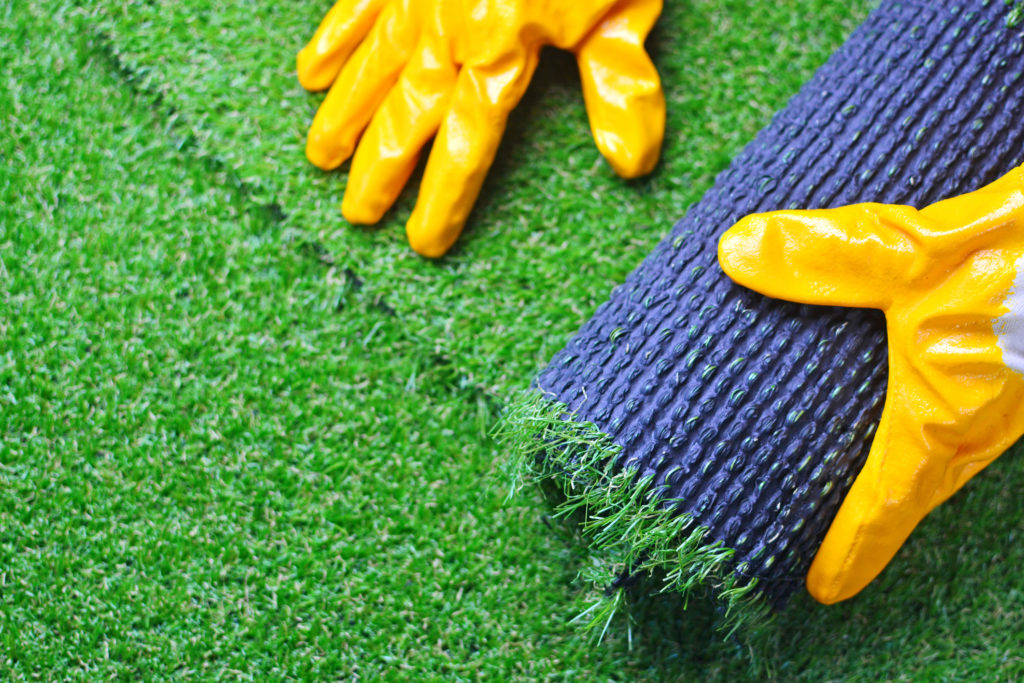Letter: Artificial Turf for Amherst Athletic Fields An Unconscionable Choice

Photo: istock
The following letter was sent to the Amherst Regional School Committee on November 27, 2023.
by Maura and Art Keene
We write to ask you to discard the School Committee’s existing plan to repair the track at Amherst Regional High School with an artificial turf infield (Option 3) and to adopt Option 2 which would allow for an immediate repair and re-orientation of the track but with a grass infield. We make this request based on the well-documented public health and environmental hazards posed by artificial turf, and on the prospect that the product is slated to be banned within the Commonwealth.
We note that we support the reorientation and renovation of the track, but only with an organic grass infield, an option that the Regional School Committee rejected in its March 2022 vote. Two years ago, we were enthusiastic supporters of the turf field proposal but have since taken a deep dive into the public health and environmental literature on turf and consequently find the idea of installing two acres of toxic plastic directly over the Tan Brook to be unconscionable. Art additionally writes as someone who was girls cross country head coach at ARHS for 17 years.
Let us address each of these areas of concern very briefly in turn.
1. The scientific consensus is that all artificial turf contains PFAS (a family of forever chemicals) and heavy metals that are toxic. The PFAS in turf is highly carcinogenic and known to impact multiple organ systems. A team of pediatricians from the Children’s Environmental Health Center at the Icahn School of Medicine at Mt. Sinai Hospital in New York reports that while PFAS in synthetic turf is a known toxin and carcinogen, the toxic threat is especially dangerous for children and teens. Consequently, they recommend against the installation of synthetic turf in general and especially in areas that will be used by children and teens. The scientific consensus is that there is no safe level of PFAS exposure. For a report on a public hearing on the risks of turf conducted by the Nantucket Public Schools, with expert witnesses from across the country, look here.
2. According to Dr. Kyla Bennett, Director of Science Policy at PEER (Public Employees for Environmental Responsibility), an attorney and ecologist, a national authority on artificial turf, and formerly a ten-year employee of the EPA, micro-plastic particles are continuously breaking off from the synthetic grass blades of artificial turf and released into the environment due to wear and tear, aging, and degradation from exposures to ultraviolet radiation. She estimates that between 55 and 281 kg of microplastics come off a single field each year and that each particle released into the environment is an “environmental time bomb”.
3. State Senator Jo Comerford has confirmed to us that the current omnibus bill before the MA legislature on PFAS (MA S 2053) will ban in the Commonwealth, the sale and manufacture of any product that contains PFAS. Comerford confirms that this would include all artificial turf and that to date, no artificial turf is demonstrably PFAS free in spite of claims from manufacturers to the contrary.
The national trend among schools and municipalities is to move away from turf and toward natural, organic grass. (national legislation summary here).
You can find a selected biography on the health and environmental hazards posed by artificial turf here.
We note that the Pelham and Leverett CPA Committees have voted against funding the field renovations if they will include artificial turf. The District withdrew its application to the Shutesbury committee. Both Pelham and Shutesbury Town Meeting voted against the installation of artificial turf and urged their representatives on the Regional School Committee to pivot to grass instead. Also, the Pelham, Leverett, Shutesbury, and Amherst Boards of Health all unanimously opposed the installation of a turf field at the high school.
If you have any specific questions about the hazards or costs of turf, we can likely direct you to an expert who can answer them.
Maura Keene is a retired obstetrician-gynecologist at BayState Health Systems. Her four children are graduates of the Amherst schools. She has lived in Amherst since 1982. She is a frequent contributor to the Amherst Indy.
Art Keene is a resident of District 3, Emeritus Professor of Anthropology at UMass, and the Managing Editor of the Amherst Indy. His four children are graduates of Amherst Regional High School. He was head coach of the ARHS girls cross country team for 17 years.
